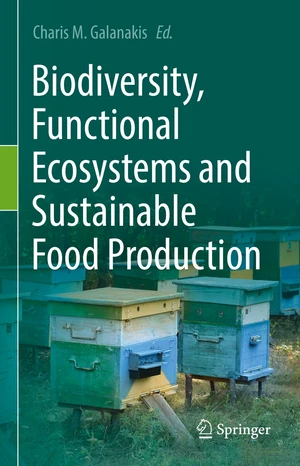In recent decades, practices like the cultivation of a few high-yielding crop varieties on a large scale, the application of heavy machinery and continued mechanization of agriculture, the removal of natural habitats, and the application of pesticides and synthetics have resulted in the simplification of agro-ecosystems. This has enabled a substantial increase in food production but has at the same time transformed landscapes. Indeed, there is a concern that a decline in biodiversity has affected microbiome activities that support processes across soils, plants, animals, the marine environment, and humans. Although they have increased food production, the above practices cannot be considered sustainable in long-term applications. Biodiversity, Functional Ecosystems, and Sustainable Food Production explore ecosystems in terms of crop and animal production, pest and disease control, nutrient cycling, and soil fertility. Chapters range from agro-biodiversity to antimicrobial use in animal food production to microbiome applications for sustainable food systems and the impacts of environment-friendly unit operations on the functional properties of bee pollen. By examining such topics about each other, the text emphasizes how food production, ecosystem function, food quality, and consumer health are all interconnected.
Price history
Oct 15, 2022
€179.38

